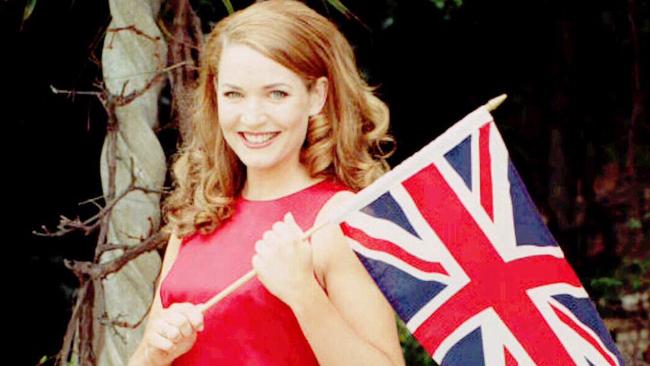Aussies hit the high notes at Eurovision
Australia’s wild-card entry into Eurovision 2015 comes after years of Australians sneaking in as writers and performers representing other countries.

Today in History
Don't miss out on the headlines from Today in History. Followed categories will be added to My News.
After years of watching from afar Aussie music lovers will finally be able to break out their glitter balls and day-glo bright costumes when this year’s Eurovision Song Contest gets underway. Yesterday’s announcement that Australia has been given a wildcard entry to the music extravaganza in May has been greeted with some excitement.
Some might ask why a European song contest allows an entry from a country on the other side of the world. But there have been previous non-European entries, including Morocco and Israel.
Apparently we have been invited to compete because Australia has such a fascination, even passion, for the contest. We love the glamour, the visual extravaganza and the heightened kitsch.
Australia has also long since established a presence in terms of singers, going back at least to the 1970s, but also several songwriters.
Eurovision began in 1956, conceived by Marcel Bezencon, the French head of the European Broadcasting Union (EBU) as an experiment in live television. The EBU, a loose affiliation of broadcasters from European countries, wanted to see what they could do with a big nation-straddling live event, so they created their own.
As the 1956 competition was broadcast in May and regular TV transmissions only began in Australia in September, most people here would have listened on the radio.
An Australian just missed out on performing at the first Eurovision. Singer Shirley Abicair sang Little Ship at the Festival Of British song contest, which many assumed would be the competition to select the British entry to the 1956 Eurovision. However, Britain did not send a representative.
When young Coventry-born Australian singer Frank Ifield was trying to make a name for himself in the UK in 1962 he took a crack at a similar competition called A Song For Europe, to select Britain’s Eurovision representative. Singing Alone Too Long, written by Curtis Kent (aka Vince Hill), he came second to Ring-a-ding Girl sung by Ronnie Carroll. Carroll finished fourth at Eurovision.
One of the four tied winners of the 1969 Eurovision, representing Britain was Lulu, singing Boom Bang-a-bang. At the time Lulu was married to English-born Australian raised singer Maurice Gibb of the Bee Gees, which made her an honorary Australian.
The 1972 contest saw Australian singer Keith Potger’s group The New Seekers perform Beg Borrow Or Steal, penned by a trio of composers including Australian Tony Cole. Potger didn’t perform, so technically they were a British version of an Australian group.
British-born Australian Olivia Newton John represented Britain at the 1974 contest, singing Long Live Love, but she didn’t stand a chance against the Swedish entrants ABBA singing Waterloo.
When the Shadows performed for Britain in 1975 with Let Me Be The One, their line-up featured Melbourne-born vocalist John Farrar. The Shadows came second and Farrar went on to become a songwriter for Newton-John.
Ifield had another tilt at Eurovision in 1976 with the song Ain’t Gonna Take No For An Answer, but the winner was Brotherhood Of Man with Save Your Kisses For Me. One of the members of Brotherhood, one of the writers of the winning song, was Martin Lee who had spent several years in Australia as a boy.
In 1980 Irish-Australian singer, Johnny Logan, born in Frankston Victoria, sang What’s Another Year by Irish composer Shay Healey, winning the competition. Logan won again in 1987, again represented Ireland with his own song Hold Me Now. He was only artist ever to win twice. He also wrote Ireland’s 1992 entry Why Me? sung by Linda Martin, which also took out first prize.
Britain looked to another Australian in 1996 to uphold their hopes at Eurovision, choosing Gina G from Queensland. She sang Ooh Aah Just A Little Bit, which didn’t do well on the night, finishing eighth but it was a big hit for Gina.
Australian-born singer Jane Comerford fronted German band Texas Lightning in 2006 with the country song No, No, Never. They came 14th.
Australians Craig Porteils and Cameron Giles-Webb wrote Greece’s 2009 entry This Is Our Night sung by the wonderful Sakis Rouvas.
It came seventh but became a big hit for Rouvas.
Last year Jessica Mauboy was invited to perform a song during the interval of the finals, a precursor to an Australian actually entering the contest this year.
troy.lennon@news.com.au



